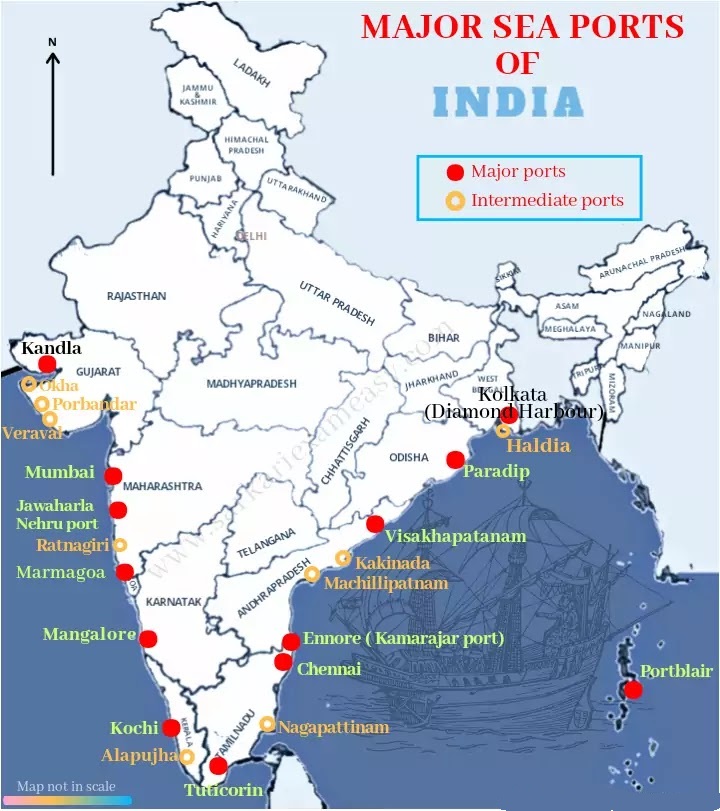900 319 0030
enquiry@shankarias.in
Why in news?
Maritime States (Tamil Nadu, Kerala, Andhra Pradesh, Odisha and Maharashtra) have expressed dissatisfaction over the Indian Ports Bill 2021.
What is the bill about?
What are the welcome features?

What are the contentious provisions?
Maritime State Development Council
Powers
What is the changing trend with Indian ports?
What does this call for?
Source: Business Line